|
李明德
李明德,北京人。 1965年南开外文系英语专业毕业后分配到中国科学院外事局。曾任中国科学院外事局项目官员、处长 (为周恩来、邓小平、郭沫若、陈毅、李先念、万里、方毅、王震、耿飚、廖承志等国家领导人担任英语翻译) ;中国驻美国大使馆一等秘书、代理科技参赞,副译审; 中国社会科学院外事局副局长,译审; 中国社会科学院美国研究所和拉丁美洲研究所所长,译审; 中国社会科学院拉丁美洲研究所所长,译审,等职务。曾兼职:《拉丁美洲研究》学术期刊主编;中国社会科学院APEC研究中心顾问;美国马里兰大学华人国际事务研究中心顾问;中国社会科学院南太平洋和澳大利亚研究中心副主任;中国社会科学院加拿大研究中心副主任;中美政府科学合作联合委员会中方执行秘书;《中外产业科技》学术期刊编委会副主任;中国管理科学研究院兼职教授;《中外管理科学》编辑;中国国家自然科学基金会兼职研究员;《中国科学报》顾问;中国拉丁美洲学会副会长;中拉友好协会理事;中华美国经济研究会理事;美国亚洲研究基金会理事;美国地理学会会员;太平洋经济合作组织中国委员会人力资源分会委员;中国城市人类学学会理事;中国加拿大研究会理事;中国翻译学会会员等。美国南方大学“布朗教授”,主讲“当代中国”课程;美国斯坦福大学胡佛研究所访问学者;美国诺特丹大学访问学者;美国康乃尔大学访问学者。
  
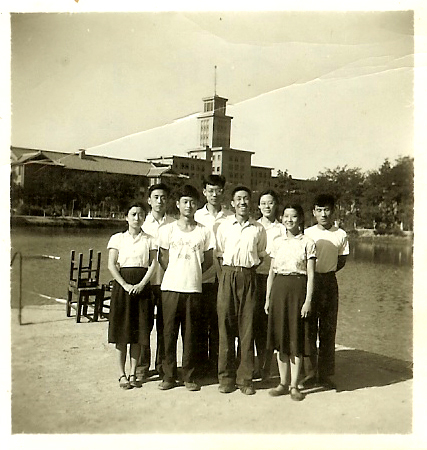
毕业照后排左起第二人为李明德 1965
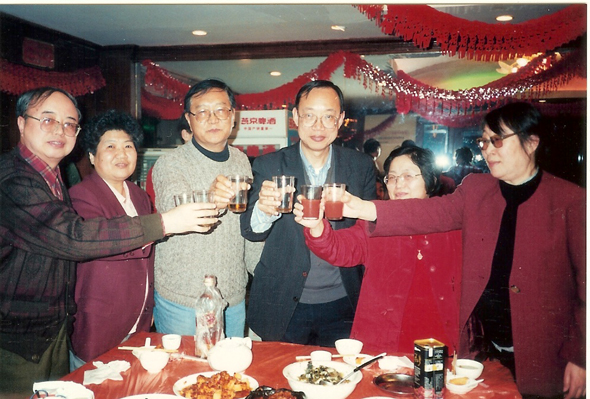
右起第三人李明德, 1999于北京
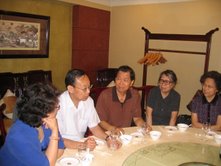
左起第二人李明德,2008年6月 北京
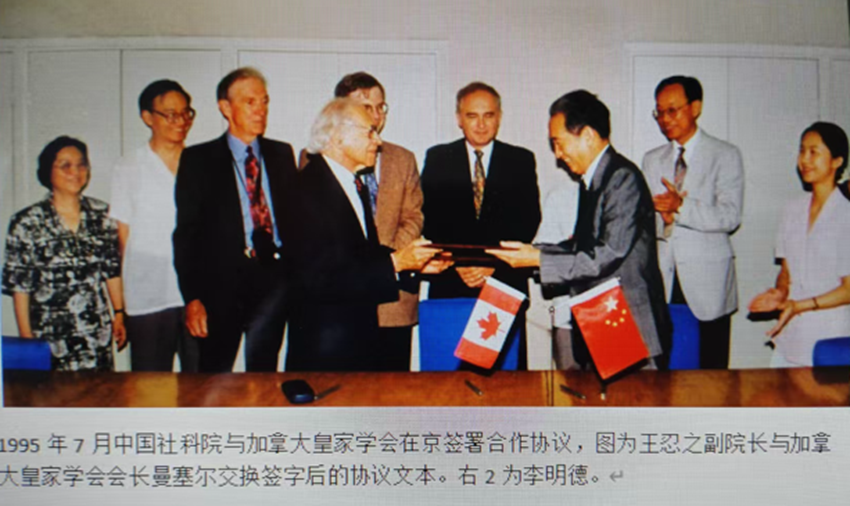

 中国科学家代表团 1972年访美背景和简况 中国科学家代表团 1972年访美背景和简况
 李明德2000年之后部分著作介绍: 李明德2000年之后部分著作介绍:
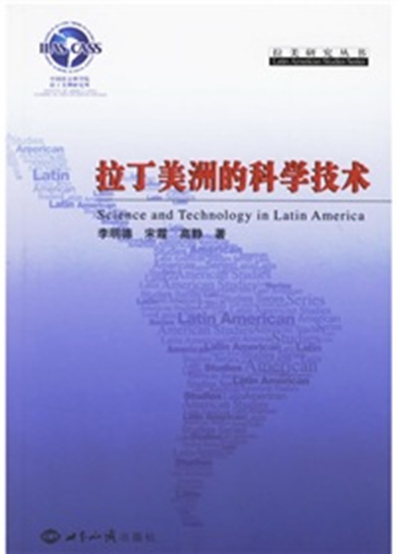
作者:李明德等著, 出版社:Jing xiao Xin hua shu dian, 出版日期:2006-10-01
商品條碼:9787501228935, ISBN:7501228930
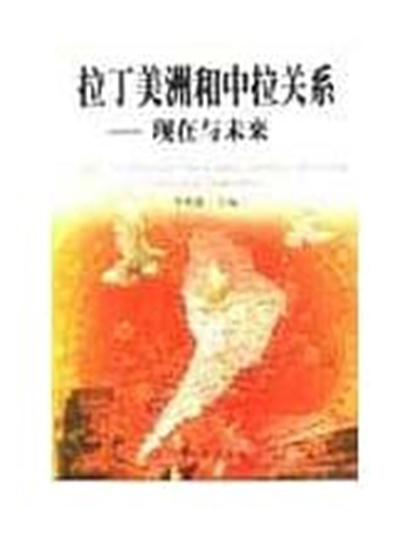
作者:李明德主編, 出版社:Xin hua shu dian jing xiao, 出版日期:2001-10-01
商品條碼:9787800096709, ISBN:780009670X
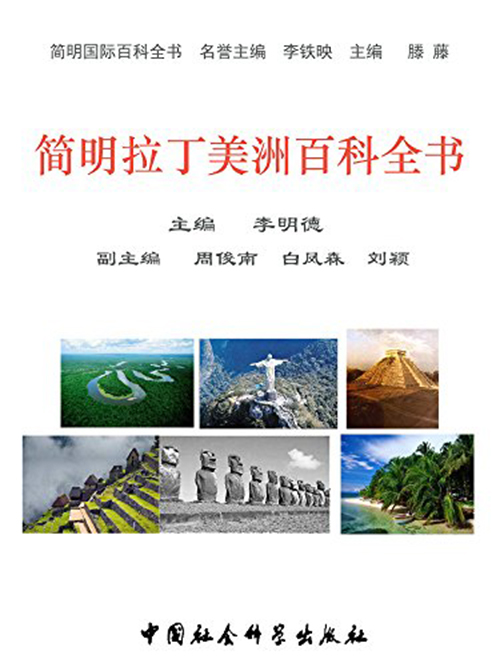
作者:李明德主編, 出版社: 出版日期:2001-01-01
定價 234 元, 最低 194 元起.....
商品條碼:9787500430070, ISBN:7500430078
 李明德著作文章一览表 李明德著作文章一览表
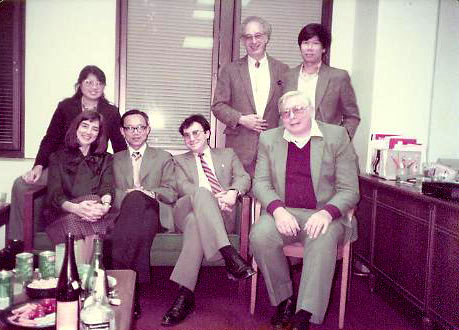
李明德在Philadelphia访问,后排右一梁一雄 1985 |
|

 编后感: 明德当年每天清晨在新开湖边,马蹄湖畔,认真阅读背诵《北京周报》的情景历历在目. 功夫不负有心人啊。 编后感: 明德当年每天清晨在新开湖边,马蹄湖畔,认真阅读背诵《北京周报》的情景历历在目. 功夫不负有心人啊。
  
|
English Poet Sir Philip Sidney (1554-1586) |
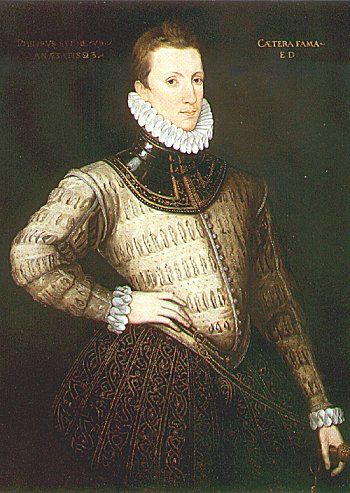
(This work of art is in the public domain.)
Sir Philip Sidney (1554 – 1586) is one of the Elizabethan Age's most prominent figures. Embodied many of the ideal man of the Renaissance, He was famous in his day in England as a poet, courtier and soldier. Born at Penshurst Place, Kent, he was the eldest son of Sir Henry Sidney and Lady Mary Dudley. His mother was the daughter of John Dudley, 1st Duke of Northumberland. Philip was educated at Shrewsbury School and Christ Church, Oxford. He was much travelled and highly learned. In 1572, he travelled to France as part of the embassy to negotiate a marriage between Elizabeth I and the Duc D'Alençon. He spent the next several years in mainland Europe, moving through Germany, Italy, Poland, and Austria. Returning to England in 1575, Sidney met Penelope Devereux, the future Lady Rich; though much younger, she would inspire his famous sonnet sequence of the 1580s, Astrophel and Stella. Her father, the Earl of Essex, is said to have planned to marry his daughter to Sidney, but he died in 1576. In England, Sidney occupied himself with politics and art. He defended his father's administration of Ireland in a lengthy document.
Both through his family heritage and his personal experience , Sidney was a keenly militant Protestant against Roman Catholic Church and Spain. In 1585, his enthusiasm for the Protestant struggle was given a free rein when he was appointed governor of Flushing in the Netherlands. In the Netherlands, he consistently urged boldness on his superior, his uncle the Earl of Leicester. He conducted a successful raid on Spanish forces near Axel in July, 1586. Later that year, he joined Sir John Norris in the Battle of Zutphen. During the siege, he was shot in the thigh and died twenty-six days later. According to story, while lying wounded he gave his water-bottle to another wounded soldier, saying, "Thy necessity is yet greater than mine". This became possibly the most famous story about Sir Phillip, intended to illustrate his noble character.
Astrophel and Stella: I
by Sir Philip Sidney |
|
| |
Loving in truth, and fain in verse my love to show,
That she, dear she, might take some pleasure of my pain,--
Pleasure might cause her read, reading might make her know,
Knowledge might pity win, and pity grace obtain,--
I sought fit words to paint the blackest face of woe;
Studying inventions fine her wits to entertain,
Oft turning others' leaves, to see if thence would flow
Some fresh and fruitful showers
upon my sunburn'd brain.
But words came halting forth, wanting invention's stay;
Invention, Nature's child, fled step-dame Study's blows;
And others' feet still seem'd but strangers in my way.
Thus great with child to speak and helpless in my throes,
Biting my truant pen, beating myself for spite,
"Fool," said my Muse to me, "look in thy heart, and write."
|
|
Astrophel and Stella: LXIV |
|
|
| |
No more, my dear, no more these counsels try;
Oh, give my passions leave to run their race;
Let Fortune lay on me her worst disgrace;
Let folk o'ercharg'd with brain against me cry;
Let clouds bedim my face, break in mine eye;
Let me no steps but of lost labour trace;
Let all the earth with scorn recount my case,
But do not will me from my love to fly.
I do not envy Aristotle's wit,
Nor do aspire to Caesar's bleeding fame;
Nor aught do care though some above me sit;
Nor hope nor wish another course to frame,
But that which once may win thy cruel heart:
Thou art my wit, and thou my virtue art.
|
|
Astrophel and Stella: XXIII |
|
|
| |
The curious wits, seeing dull pensiveness
Bewray itself in my long-settl'd eyes,
Whence those same fumes of melancholy rise,
With idle pains and missing aim do guess.
Some, that know how my spring I did address,
Deem that my Muse some fruit of knowledge plies;
Others, because the prince my service tries,
Think that I think state errors to redress;
But harder judges judge ambition's rage--
Scourge of itself, still climbing slipp'ry place--
Holds my young brain captiv'd in golden cage.
O fool or over-wise! alas, the race
Of all my thoughts hath neither stop nor start
But only Stella's eyes and Stella's heart.
|
|
Astrophel And Stella: LIV |
|
|
| |
Because I breathe not love to every one,
Nor do not use set colours for to wear,
Nor nourish special locks of vowed hair,
Nor give each speech a full point of a groan,
The courtly nymphs, acquainted with the moan
Of them who in their lips Love's standard bear,
"What, he!" say they of me, "now I dare swear
He cannot love. No, no, let him alone."—
And think so still, so Stella know my mind!
Profess indeed I do not Cupid's art;
But you, fair maids, at length this true shall find,
That his right badge is worn but in the heart.
Dumb swans, not chattering pies, do lovers prove:
They love indeed who quake to say they love.
|
|
| |
Leave Me, O Love Which Reachest But To Dust
by Sir Philip Sidney |
|
|
| |
Leave me, O love which reachest but to dust,
And thou, my mind, aspire to higher things;
Grow rich in that which never taketh rust:
Whatever fades but fading pleasure brings.
Draw in thy beams, and humble all thy might
To that sweet yoke where lasting freedoms be,
Which breaks the clouds and opens forth the light
That doth both shine and give us sight to see.
O, take fast hold; let that light be thy guide
In this small course which birth draws out to death,
And think how evil becometh him to slide
Who seeketh heaven, and comes of heavenly breath.
Then farewell, world! thy uttermost I see:
Eternal Love, maintain thy life in me.
|
|
 
|
   
|

